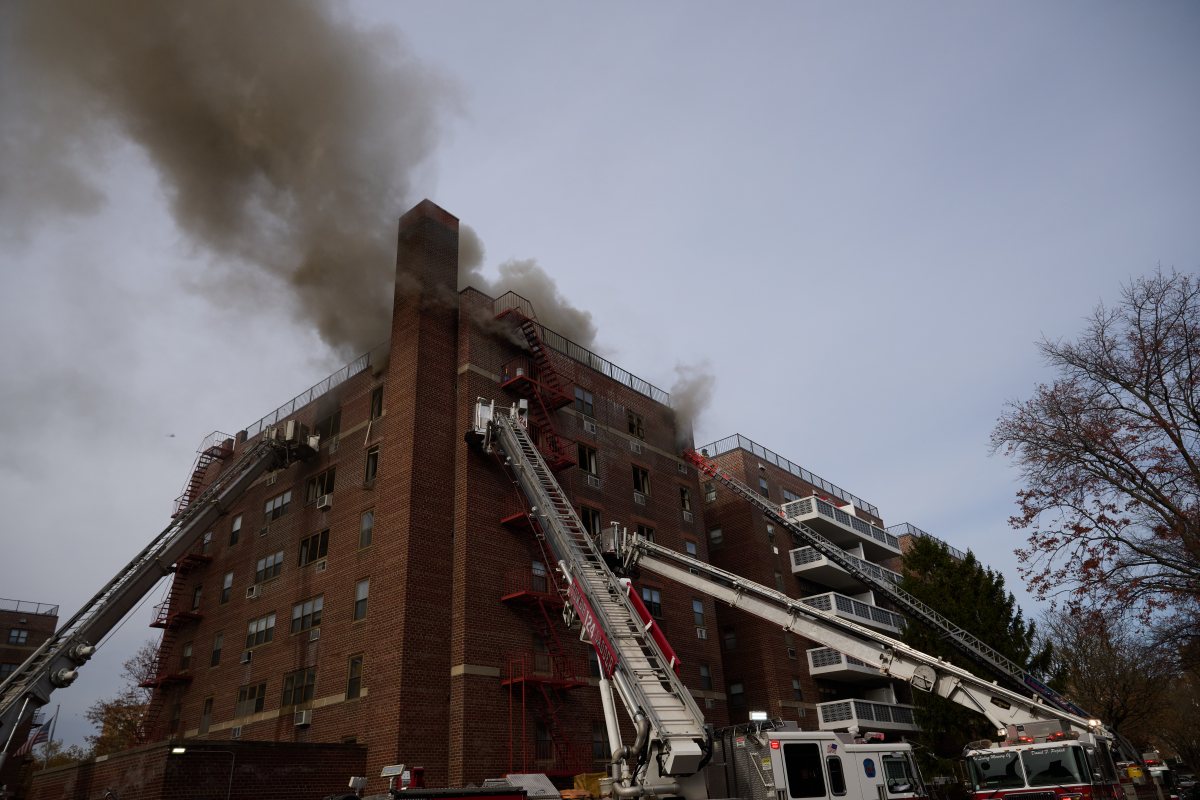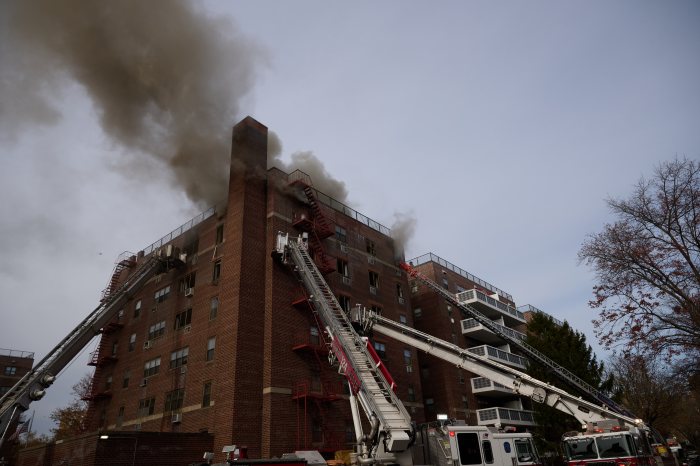BY ALINE REYNOLDS
Iranian-American finds humor in faith, family
ALL ATHEISTS ARE MUSLIM
FringeNYC shows run through Aug. 28, 2pm-midnight weekdays and noon-midnight on weekends. Tickets: $15 in advance at FringeNYC.org or 866-468-7619; $18 at the door. Discount passes for multiple shows. For show dates, times and venue info, visit FringeNYC.org.
“Being a Muslim really just means believing in a force greater than oneself, like gravity.”
That patently absurd line of dialogue exemplifies the witty, innovative quality of “All Atheists are Muslim” — a solo play written and exquisitely performed by Iranian-American Zahra Noorbakhsh. While the show didn’t succeed in turning me into a Muslim (its promotional poster carries the warning, “the first three rows may be converted to Islam,” and I was seated in row one), I did feel my trip to the theater was transformative in its own way.
This sparkling autobiographical comedy underscores Noorbakhsh’s struggles in disclosing to her conservative, Muslim parents that her atheist, “whitey-white” boyfriend, Duncan, is moving into her apartment. Noorbakhsh’s mom and dad (particularly, her dad, naturally) throw a hissy fit and try to convince her to change her mind.
Ultimately, her father comes up with the compromise of organizing a “pre-engagement” ceremony, in which the couple agrees to take religious vows at the parents’ home to pronounce their commitment to one another.
As the writer of her own real-life drama, Noorbakhsh manages to get creative with the mundane subject of parent-daughter relations. She conceives an argument with her father as a hilarious boxing match, in which the warring sides throw figurative jabs at each other. The “punches” include the Koran, Noorbakhsh’s grandmother’s reaction to her indiscretion, sexual independence, and even Oprah.
In a post-show interview, Noorbakhsh spoke to me about the challenges of performing her life story on stage. “The part that makes it really difficult is that I have to then split me, Zahra, in my real life, from how I’m portraying this as an artistic piece, to let it slowly become its own developed thing,” she said. “In that way, distancing yourself from it enough that you can look at it as an artistic work gets tricky.” (It might behoove Noorbakhsh to divulge that the storyline is autobiographical at the end of the show. I even told her so.)
The minimalist show (lacking both props and other actors) places undue pressure on the actress to keep the audience engaged — and forces her to dramatize every exchange to the point that some scenes become more comical than realistic.
But, given these hurdles, Noorbakhsh delivered a masterful performance. Her impersonations of her father and boyfriend were strikingly credible (brought to life despite not changing into men’s clothes). Most impressive was Noorbakhsh’s ability to switch between the different characters, and to impersonate characters within characters — a testament to her tremendous talent and stage charisma.
“I think for me, what makes it easier and a lot of fun is the [different] dialects of the languages and the physicality,” said Noorbakhsh. “Like, when I sink into my dad’s posture, it just kind of comes out by itself.”
Apart from exposing Muslim interfamilial dynamics, the show sheds light on the socio-political perceptions of Iranians during the presidency of George W. Bush. The audience also takes a journey with Noorbakhsh into late 1970s Iran — demonstrating glaring cultural differences that remind Noorbakhsh of her roots and, perhaps, influence the character to remain loyal to her family values.





































